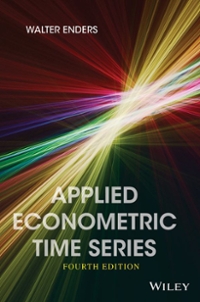Question
10. Agreements and disagreements among economists regarding fiscal policy Consider a hypothetical economy in which households spend $0.80 of each additional dollar of their after-tax
10. Agreements and disagreements among economists regarding fiscal policy
Consider a hypothetical economy in which households spend $0.80 of each additional dollar of their after-tax income. The expenditure multiplier for this economy is _____.
Suppose that this economy is experiencing a recession. The government would like to stimulate aggregate demand and is deciding whether it should increase its spending by $1 billion or reduce income tax by $1 billion.
Assume other things remain constant, and the marginal propensity to consume remains at 0.8. Before any multiplier effect takes place, a $1 billion increase in government spending will increase the aggregate demand by $______ billion, while a $1 billion reduction in income tax will increase the aggregate demand by________ billion.
Now consider the effect of each fiscal policy after the multiplier effect is complete. A $1 billion increase in government spending will result in a total increase of aggregate demand by $_______ billion, whereas a $1 billion reduction in income tax will result in a total increase of aggregate demand by $_______ billion.
Keynesians believe that the multiplier effect of an increase in government spending will be______ (< > or =) that of a tax cut of the same amount.
True or False: The impact of a one-time tax rebate tends to be greater than a permanent tax cut. True False
Step by Step Solution
There are 3 Steps involved in it
Step: 1

Get Instant Access to Expert-Tailored Solutions
See step-by-step solutions with expert insights and AI powered tools for academic success
Step: 2

Step: 3

Ace Your Homework with AI
Get the answers you need in no time with our AI-driven, step-by-step assistance
Get Started


